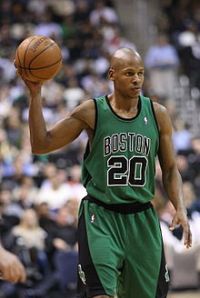
Tom Brokaw
This commentary is also online at the Huffington Post.
What we were talking about, in case U.S. Sen. Scott Brown’s diversionary tactics led you astray, was a televised debate, held before a neutral audience, to be moderated by Tom Brokaw. Everything else is baloney.
As you no doubt already know, Brown made two demands that had to be met before he would agree to a debate with his Democratic rival, Harvard Law School professor Elizabeth Warren.
The first was that Vicki Kennedy, president of the Edward M. Kennedy Institute, which would sponsor the debate, refrain from endorsing a candidate for “the duration of the Senate race.”
The second was that the debate be carried only by local media outlets and not by “out-of-state cable networks with a reputation for political advocacy” — clear reference to the liberal outlet MSNBC, which had been mentioned as a possibility.
Both demands were ridiculous because they were irrelevant. But when Vicki Kennedy rejected the first of those demands, that was enough for Brown to say no.
(At this point I suppose I should include a non-disclosure: I’m not related to those Kennedys.)
Brown might have been able to make a reasonable case for asking Vicki Kennedy not to endorse until after the debate. But demanding that she refrain for “the duration” was just silly. If the media consortium that includes the Boston Globe schedules a debate, will Brown insist that the Globe not endorse? And what will Brown say if the Boston Herald, as is its wont, puts together its own debate? Surely he won’t ask the paper to withhold its all-but-certain Brown endorsement.
As for MSNBC, the debate organizers could prevent the channel from carrying it live. Afterwards, though, Rachel Maddow, Ed Schultz and company would be free to show clips and comment on them whether they had carried the full debate or not. The fair-use provision of the copyright law guarantees that — not to mention the First Amendment.
And why did I say the debate would be held before a neutral audience? Because you can be sure the Brown and Warren campaigns would insist on equal numbers of partisans in the audience. So the Kennedy Institute’s sponsorship isn’t an issue, either.
I know some observers have questioned Brokaw’s alleged liberal bias. But since that hasn’t been raised by the Brown campaign, we have to assume he had no problem with Brokaw as moderator. When Brokaw moderated a debate between Barack Obama and John McCain in 2008, he seemed mainly interested in making sure neither candidate exceeded his allotted time. Liberal or not, Brokaw has earned his status as a fair-minded journalist who can be trusted not to throw the debate to either candidate.
It’s also hard to figure why Brown suddenly has a problem with Vicki Kennedy or the Kennedy Institute, given that he took part in a debate with Martha Coakley two years ago that was co-sponsored by the institute without setting any preconditions. As Herald columnist Peter Gelzinis points out, it was only a year ago that Brown couldn’t say enough good things about the late Ted Kennedy’s widow.
Globe columnist Scot Lehigh thinks Brown’s demands were “reasonable,” and he gives the senator credit for sticking to them. Yet Lehigh doesn’t tell us what Brown could possibly gain by failing to take part.
As my Northeastern colleague Alan Schroeder, an expert on political debates, puts it, “They’re making such an effort to portray Brown as someone with bipartisan credentials who can work with Democrats, and yet here’s this relatively mild example of cooperating with a Democrat, and they’re balking at it.”
Boston Phoenix political columnist David Bernstein wonders if Brown is trying to curry favor with the hierarchy of the Catholic Church, which has had its own issues with Vicki Kennedy.
Who knows what Brown and his advisers are thinking? Their political astuteness is generally beyond question. Maybe this will prove to be a smart move. Right now, though, it looks like a rare misstep, especially curious given that Brown initially made the Warren campaign look flat-footed with his rapid acceptance of several debate invitations.
My own bias is in favor of as many debates as possible, regardless of the venue. For instance, I don’t understand why Warren won’t say yes to WBZ Radio (AM 1030) talk-show host Dan Rea, who is conservative but is as fair as they come.
The candidates really don’t have anything better to do. How would we prefer they spend their time? Making television ads? Attending fundraisers? Of course not. They should spend as much time as possible side by side, talking about the issues. It’s not always the most edifying experience, but it’s better than any conceivable alternatives.
Photo (cc) by Michael Kwan and republished here under a Creative Commons license. Some rights reserved.




 By Bill Kirtz
By Bill Kirtz

 As you may have heard, Taunton voters overwhelmingly approved a tribal casino in a nonbinding referendum on Saturday. But that’s not even close to the whole story.
As you may have heard, Taunton voters overwhelmingly approved a tribal casino in a nonbinding referendum on Saturday. But that’s not even close to the whole story.
